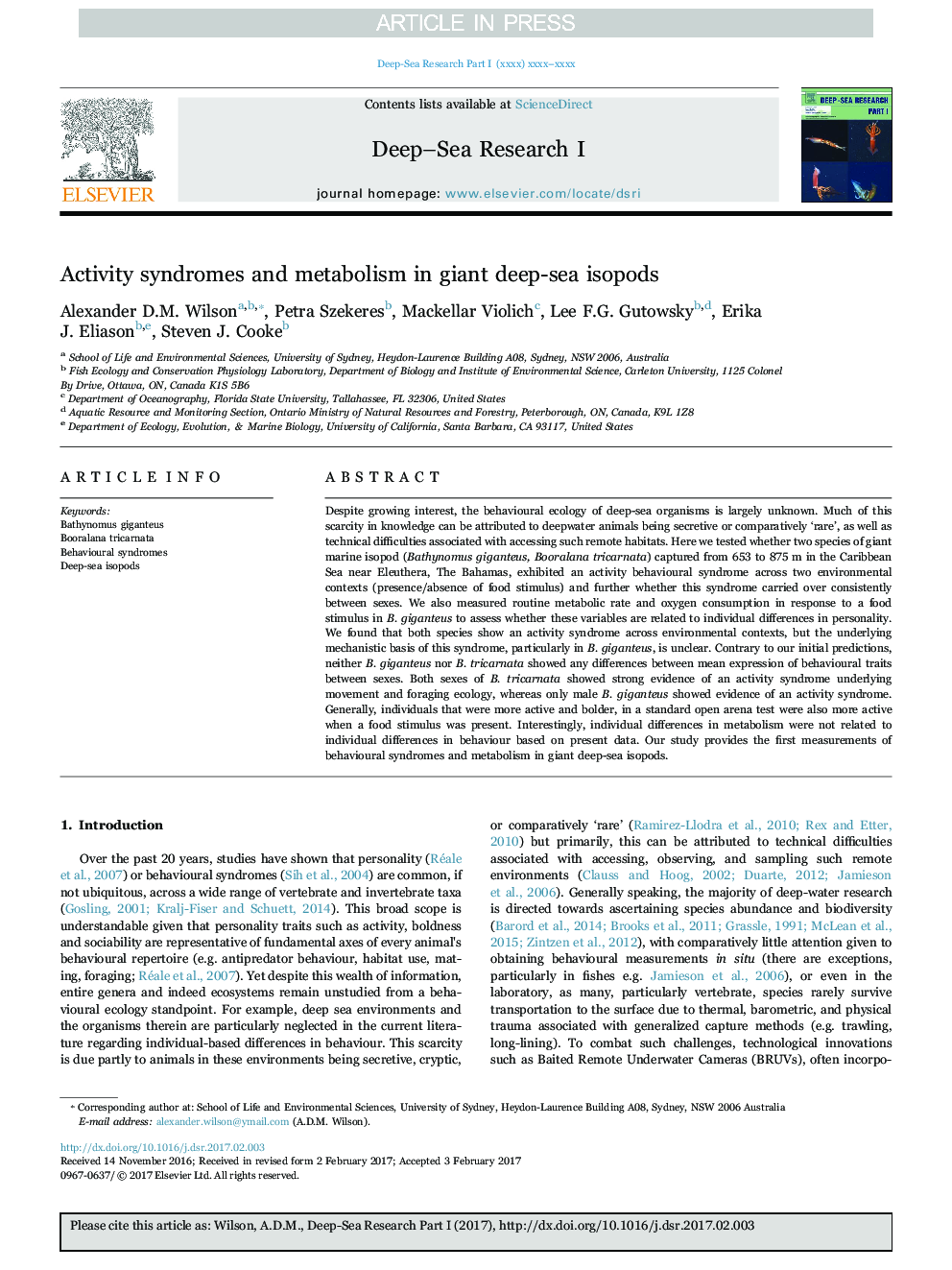| Article ID | Journal | Published Year | Pages | File Type |
|---|---|---|---|---|
| 5764640 | Deep Sea Research Part I: Oceanographic Research Papers | 2017 | 8 Pages |
Abstract
Despite growing interest, the behavioural ecology of deep-sea organisms is largely unknown. Much of this scarcity in knowledge can be attributed to deepwater animals being secretive or comparatively 'rare', as well as technical difficulties associated with accessing such remote habitats. Here we tested whether two species of giant marine isopod (Bathynomus giganteus, Booralana tricarinata) captured from 653 to 875Â m in the Caribbean Sea near Eleuthera, The Bahamas, exhibited an activity behavioural syndrome across two environmental contexts (presence/absence of food stimulus) and further whether this syndrome carried over consistently between sexes. We also measured routine metabolic rate and oxygen consumption in response to a food stimulus in B. giganteus to assess whether these variables are related to individual differences in personality. We found that both species show an activity syndrome across environmental contexts, but the underlying mechanistic basis of this syndrome, particularly in B. giganteus, is unclear. Contrary to our initial predictions, neither B. giganteus nor B. tricarinata showed any differences between mean expression of behavioural traits between sexes. Both sexes of B. tricarinata showed strong evidence of an activity syndrome underlying movement and foraging ecology, whereas only male B. giganteus showed evidence of an activity syndrome. Generally, individuals that were more active and bolder, in a standard open arena test were also more active when a food stimulus was present. Interestingly, individual differences in metabolism were not related to individual differences in behaviour based on present data. Our study provides the first measurements of behavioural syndromes and metabolism in giant deep-sea isopods.
Keywords
Related Topics
Physical Sciences and Engineering
Earth and Planetary Sciences
Geology
Authors
Alexander D.M. Wilson, Petra Szekeres, Mackellar Violich, Lee F.G. Gutowsky, Erika J. Eliason, Steven J. Cooke,
